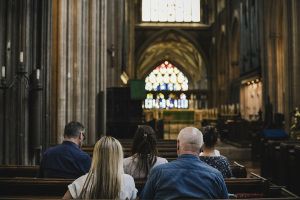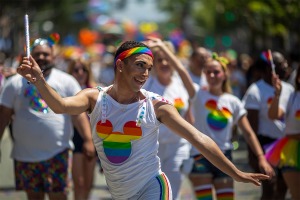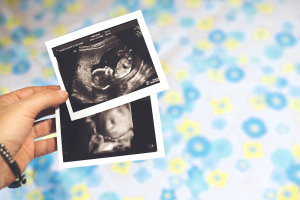Study Breaks Stereotypes of Orthodox Christians
Americans, for the most part, have very little knowledge about Orthodox Christianity. For those who are familiar with the historical faith, most associate it with Greek or Russian culture.
A new study, however, is breaking stereotypes and providing insights into the life of some of the least known Christians in the country.
With an estimated 1.2 million or more adherents in the country, Orthodox Churches are growing in membership and budding into the line of sight of Americans.
Although the churches have historically been ethnic-based communities and have largely kept distant from mainstream American culture, the first national survey-based study of Orthodox parishioners shows they are very much a part of America.
Many parishioners are not looking to preserve their ethnic heritage, according to the "Orthodox Church Today" survey, recently released by the Patriarch Athenagoras Orthodox Institute – an affiliate member of the Graduate Theological Union that exists to educate, communicate and promote the traditions and culture of Orthodox Christianity.
Among members in the second largest Orthodox Church in the country – Orthodox Church in America (OCA) – only 22 percent of parishioners said their parish has a strong ethnic heritage that they are trying to preserve; 37 percent said that was "somewhat true;" and 41 percent said that was "not true."
Members of the Greek Orthodox Archdiocese of America (GOA) – the largest Orthodox Church in the nation – remain more aligned with their heritage with 59 percent saying they are trying to preserve their strong ethnic heritage and 10 percent indicating that they are not.
Still, the study highlights that nine out of ten parishioners in the two largest Orthodox Christian Churches in the country are American-born.
American-born Orthodox Christians are not only composed of those of younger generations whose grandparents or great grandparents immigrated, but a significant portion contributing to the statistic are converts from other Christian faiths.
According to the study, more than half of OCA clergy and laity converted from Protestant or Roman Catholic churches. In GOA churches, 29 percent of lay persons are converts to Orthodox Christianity and 12 percent of clergy are converts.
Alexei Krindatch, research director at the Institute, believes many evangelical Christians are switching to Orthodox Churches because they are searching for a church not only with strong beliefs but also with deep historical roots. And a major reason for conversion among Roman Catholics is their discontentment with modernizations the church has been making to appeal to younger people, Krindatch pointed out.
In addition to breaking the ethnic church stereotype, the study also found that not all Orthodox Christians are equally "Orthodox." Forty-one percent of church members described their theological position as "traditional" while sizeable factions identified themselves as "conservative" (28 percent) or "moderate-liberal" (31 percent).
Additionally, they are divided on evolution and creationism with regard to public education. Thirty-three percent favor teaching creationism instead of evolution in American public schools, 35 percent reject this idea, and 32 percent are not able to take a stand on the matter. Also, 41 percent agree that "evolutionary theory is compatible with the idea of God as Creator" while 38 percent disagree.
Despite the theological diversity and increase in American membership, Krindatch stressed that Orthodox Christians have not compromised their beliefs and traditions.
"They do not adjust to mainstream society," he commented.
One indicator of their conviction, Krindatch pointed out, is their consistent view against the ordination of women. Only three in ten parishioners would support women being altar servers or deacons, and only one in ten think that women should be eligible to the Orthodox priesthood, the study showed. Male and female respondents expressed the same opinions on the ordination of women, the study noted.
Furthermore, more than two-thirds of parishioners say they prefer a parish that requires uniformity of belief and practice. Only one in four favor parishes that tolerate diversity of beliefs and practices, where people hold different views and openly discuss their disagreements.
A majority in both GOA and OCA churches are satisfied with where they are now, with nearly half saying they are "faithfully maintaining" their traditions and should continue to do so.
Meanwhile, 17 percent of GOA members and 25 percent of OCA members feel they are "too strongly tied" to their past and need to rethink where they are now and decide about new directions.



























